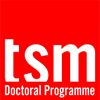Semester 3
Code MMUFA301
ECTS 6.00
Delivery mode E-learning
Lecture Hours 30.00
Teaching Language English
Pedagogical objectives
After this course, students should be able to:
- Identify and understand the sources of lasting competitive advantage in an international context, in particular how they are built and modified over time
- Apply appropriate tools and theories to analyse and develop business strategy
- Define and evaluate root causes of issues in complex management situations
- Identify drivers and consequences of mergers and acquisitions
Prerequisite
Strategy course and International Strategy course in the first year of the MIM programme.
Code MMUFA302
ECTS 6.00
Delivery mode E-learning
Lecture Hours 30.00
Teaching Language English
Pedagogical objectives
1/ Cross-cultural management
Cross-cultural management situations are increasingly common in contemporary companies’ life and managers’ careers. This course addresses foundations and challenges attached to dealing with multicultural situations and contexts. It particularly puts the emphasis on increasing students’ awareness of their own cultural assumptions and backgrounds. It further identifies relevant perspectives and concepts students might use to comprehend and address drivers behind challenges stemming from cross-cultural issues and national diversity in organizations.
Practical examples in the form of case studies, hands-on exercices and individual and group work accompany each building block. Also, students will run a web-based simulation (Mt. Everest – Harvard Business Publishing) where they have to deal with and analyze cross-cultural challenges affecting group dynamics, coordination and decision-making.
Students are expected to prepare carefully each session's required readings, exercices, videos, group and individual project work.
Intended learning outcomes (ILOs):
After this course, students should be able to:
- apply theoretical and methodological tools to understand and manage the origins and manifestations of national cultural differences in the workplace
- recognize the influence of students’ own cultures on their actions and decisions
- analyze cross-cultural situations in organizations and propose managerial solutions to address them
- identify challenges of managing diversity in organizations and strategies to overcome them
Managerial skills:
- Decision making and teamwork in multicultural groups
- Self-awareness in cross-cultural situations
Link to the programme:
After an introduction to cross-cultural management in the International Strategy course in the M1, this course covers the subject in detail. It is complementary to other courses such as Commercial Negotiation and International Human Resource Management. It further builds on the course Organisational Behaviour in the M1, introducing international perspectives on the covered topics.
2/ International HRM
Key issues in HRM are introduced to the participants, with a focus on the international and practical dimensions. As companies are to go worldwide to get performant (Schwens et al., 2017), managing the human resources and change on the international level becomes a priority. This course aims at presenting accurate and appropriate HRM concepts and operational tools in order to understand the means by which a company can be performant through a higher human capital and a better managed workforce.
Intended learning outcomes (ILOs):
After this course, students should be able to:
- show a basic understanding and knowledge of HRM concepts,
- demonstrate skills and tools enabling the concrete application of this knowledge to real issues of concern to companies,
- gain experience in applying HRM knowledge to issues relevant to international context,
- develop their ability to critically analyze, assess and deal with the managerial and organizational implications of HRM issues, at different levels of analysis,
- use HRM tools and adapt them to the international and cultural contexts,
- anchor the HR policy in the long-run and follow-up its implementation,
- experiment, share and adapt best practices in terms of HRM.
Managerial skills:
- Critical analysis and decision making in teams
- Self-management of project teams
- Concrete application of HRM knowledge and strategic thinking
Link to the programme:
The course builds on the course Organisational Behaviour in the first year of the programme and is complementary to the course Cross-Cultural Management in the second year.
Prerequisite
Basic notions of organization theory and organizational behaviour.
Code MMUFA303
ECTS 6.00
Delivery mode E-learning
Lecture Hours 30.00
Teaching Language English
Pedagogical objectives
After this course, students should be able to:
- Understand the relations between management control systems, organizations’ strategy, structure and performance formation,
- Understand the conditions of use of the major management control tools in different managerial contexts,
- Master management control tools in order to contribute to better effectiveness and efficiency of organizations,
- Improve decision making at different organization’s level through the use of management control tools,
- Evaluate the limits between efficiency and ethics,
- Stimulate and manage performance.
Prerequisite
Strategy concepts, knowledge in accounting and finance.
Code MMUFA304
ECTS 5.00
Delivery mode Blended
Lecture Hours 30.00
Teaching Language English
Pedagogical objectives
After this course, students will be able to:
- Assess the key principles of the negotiation process and the tensions which impact it
- Use a common set of skills and strategies for settling differences without winners or losers
- Recognize the common elements of seemingly different negotiations in a variety of test situations
- Make better deals and contracts, especially in international contexts
- Deal separately with issues of substance, relationship and process in a negotiation
- Apply how to turn differences into mutual gain
- Recognize how to overcome cognitive barriers in negotiation
Prerequisite
- Getting to Yes by Roger Fisher, William Ury & Bruce Patton (Penguin, 1981, 1991)
Code MMUFA305
ECTS 4.00
Delivery mode E-learning
Lecture Hours 18.00
Teaching Language English
Code MMUFA306
ECTS 4.00
Delivery mode E-learning
Lecture Hours 18.00
Teaching Language English
Pedagogical objectives
After this course, students should be able to:
- Understand the global concept of trade.
- Understand the different trade theories.
- Examines how firms conduct international trade and what strategies are used.
- Appreciate the links between finance and trade.
- Be aware of the open issues related to trade (Regionalisation trends, regulation, trade policies...)
Prerequisite
Basic knowledge in international strategy and economics
Code MMUFA307
ECTS 4.00
Delivery mode E-learning
Lecture Hours 18.00
Teaching Language English
Pedagogical objectives
After this course, students should be able to:
- Comprehend issues of global supply chain management
- Identify subcontractors’ strategies, stakes and outcomes in global terms
- Understand the contractual setting and implications for Aerospace subcontracting
- Analyze advantages and challenges of global sourcing
- Evaluate and acknowledge future developments and challenges for aerospace subcontractors
Prerequisite
Strategy courses, or equivalent to the courses in strategy and international strategy in the first year of the MIM programme.
Code MMUFA308
ECTS 3.00
Delivery mode Blended
Lecture Hours 30.00
Teaching Language English
Prerequisite
Courses in strategic management, finance, accounting, international management control, international marketing.
Semester 4
Code MMUFA401
ECTS 10.00
Delivery mode E-learning
Lecture Hours 18.00
Teaching Language English
Pedagogical objectives
After this course, students should be able to:
- manage a project through all stages
- apply tools to plan projects efficiently
- analyze and resolve challenges of project implementation
- produce deliverables as determined by client
- apply skills and concepts learned in other courses according to needs of the consulting project
Prerequisite
Courses in strategic management, finance, accounting, international management control, international marketing.
Code MMUFA402
ECTS 12.00
Delivery mode On campus
Teaching Language English
Pedagogical objectives
Students opting for a career in business administration in the second year of the programme are required to perform an internship in an international company, either in France or abroad, during minimum 6 months.
The missions to be performed during the internship are to be defined in mutual agreement between the company and the responsible professor. In any case the international component is clear: the company should have transnational activities. While courses help to prepare for and to search an internship, it is the student’s responsibility to find an internship within a company.
















